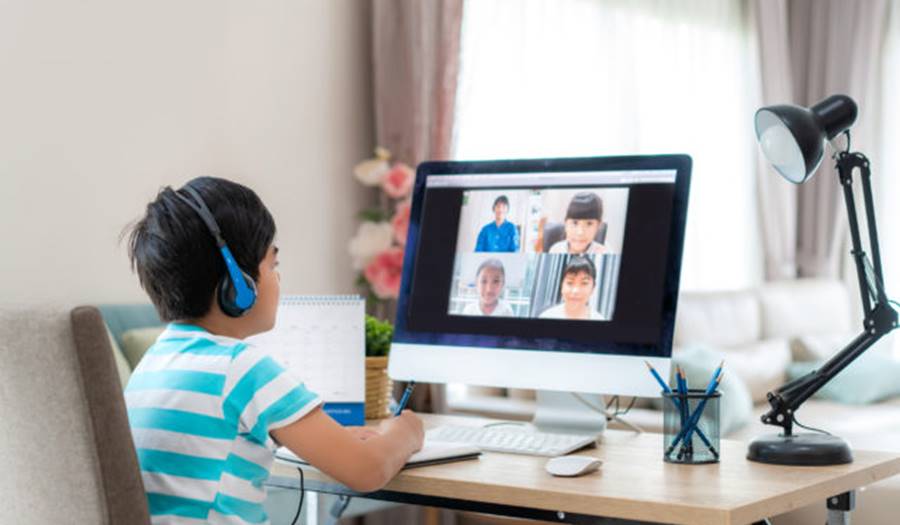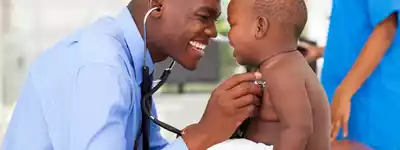
COVID and Mental Health
7/12/2021
Mental health is as important as physical health and as we learned last week, untreated mental health disorders can have long term effects on your physical health. No one is immune to mental health issues and life stressors but this year we have all experienced a major life stressor together, the COVID-19 pandemic. Everyone, including our children, has dealt with changes due the pandemic, some small and some devastating.
COVID-19 AND MENTAL HEALTH
Being a child growing up in these times is hard enough already. There is the stress of social media, friendships and relationships and the pressure to succeed that weigh upon our children. Now we have added a global pandemic onto of their normal stressors. Why is the pandemic weighing on our children?
STRESSORS AND EMOTIONS
This pandemic is an ongoing stressor. We can try to predict when it will end but it is truly and open-ended experience and it seems every time things improve, there is a backward slide due to increasing numbers, people ignoring precautions, or variants emerging in the population
These stressors can cause your child to have feelings of fear, anger, sadness, worry, numbness, frustration, or grief. Your child may not verbalize these feelings, but you may see their behavior change.
They may be more irritable or cry easily. They may show signs of depression or anxiety (see last week’s post for a full list of symptoms). They may anger easily and lash out at you or their siblings. Younger children may have behavior regressions including trouble with sleep or potty training. Your child may have a decrease in energy. They may be bored, unmotivated, or show a decreased interest in activities they normally enjoy. They may have a hard time concentrating or making decisions. Their school performance may suffer. Some kids will engage in risk taking or attention seeking behaviors.
You may see changes to their appetite, either with a low appetite or eating more than normal. Your child may have difficulty sleeping, either falling asleep or staying asleep. You may also note that your child has more physical symptoms. They may show worsening of a chronic physical or mental health condition.
Uncertainty
No matter how young your child is, or sheltered from the news, there is no way they can escape the feeling of uncertainty about the future, All of us feel that sense of uncertainty, and it creeps into many aspects of our life including school, professional, and family. Uncertainty takes away predictability, and predictability is very important to children. It is stabilizing force in their life and losing that predictability can have a big impact on their mental health. It is hard for any of us to help our children through this. Our children look to us for answers, and this is a time where we do not have that.
Fear
Additionally, children may be fearful or scared. They can hear scary things in the news, from family or from friends. As children, they can’t always process this information without assistance or tell truth from fiction.
Worries or fears may include how relationships may be changed by the pandemic including friendships and romantic relationships. They may be worried about the health of their family and virus exposure. Children may be frightened that they may get sick, scared a family member may get sick. They may also be worrying about family finances.
Children may be nervous about remote school or virtual learning but also nervous about going back to school. The changes at school with masks and distancing may be uncomfortable for children who are returning from remote learning. They may worry they won’t get to play their sport or do an extracurricular or what will happen if these activities do take place. They may also be worried about balancing school and added demands that may include being your in-house IT person, their siblings’ teacher, or be providing the childcare in your house.
As the pandemic lingers on, children may worry about how long this will go on and what their new normal will look like. Will family traditions be lost or changed? What will the college process look like? What about the job market? They may also fear how long this pandemic will last or that this all feels like an experiment where no one knows the outcome.

Isolation
Children are also suffering from feelings of isolation. They are separated from friends and family. Even if your children are attempting to maintain friendships over social media and school, they know it is not the same as it was or it should be. This isolation may result in loneliness. Some children will feel loneliness due to the physical separation from friends but may be able to maintain friendship emotionally either on social media or via text. Other children may suffer loneliness due to isolation due to both physical and emotional distance.
Sometimes, our children who are lonely, actually withdraw even further. They start avoiding social interactions with their peers and sometimes their family. They may not even want to interact virtually with anyone.
With isolation from peers and other adults comes missed opportunities that are essential for childhood development. These opportunities become more important during the adolescent years. The major developmental task of adolescence is working towards independence and forging strong relationships with peers. This is hard to do when you are socially distancing and mostly housebound!
Children need time outside of their home with other adults and children for social-emotional skill building. Important tasks for children and teens include
• Identifying emotions and behaviors
• Recognizing personal qualities
• Recognizing external supports
• Setting goals, both personal and academic
• Building empathy (recognizing the feelings and perspective of others)
• Using communication and social skills to resolve conflict
• Considering other factors in decision making including ethical, safety, and societal factors
• Learning to contribute to your community
Grief
Our children are also experiencing grief. For some, this will be grief due to a lost loved one. For others it is grief over lost experiences. Your child may have a major life event such as graduation, a class trip, a special dance, or an event they are looking forward to. They may have been looking forward to attending camp or a concert. And of course, there is grief over the small everyday losses such as eating lunch at school with your friends and being able to hug friends or loved ones. Additionally, they are grieving over the lost sense of normalcy. This pandemic has taken a lot from our children, friends, school, sports, activities, and hobbies. And often a child’s identity is based on these things. They can feel like they have lost their identity. They may not feel they know who they are anymore.
Fatigue
Pandemic fatigue is affecting almost all of us including our children. Your children are over a year into this pandemic and want their lives to go back to “normal”. They are tired, they are annoyed, and almost all of them are over being so close to you and their siblings! They are sick of the pandemic, zoom meetings, and changes to their life.
THE EFFECT OF COVID ON MENTAL HEALTH
Rates of anxiety and depression have been steadily increasing over the past decade. We have seen this rise more dramatically since the start of the pandemic. Since March 2020, we have seen ER visits increase by 24% for children aged 5 to 11 years and 31% for adolescents aged 12-17 years. We have also seen a 30% increase in children reporting they have more unhappy feelings than before the pandemic. The study authors anticipated these rates will increase as the pandemic lingers on.
News outlets have indicated that suicide rates have increased since the pandemic. Luckily an epidemiological study came out in April of 2021 that showed this is NOT true. Suicide rates were actually down 3% in the year previous.

HELPING YOUR CHILD
Our children will need our help and guidance to make it through this pandemic. Next week we are going to learn about how to help our children when they have a mental health disorder or symptoms of anxiety or depression. But there are some pandemic specific things you can do to help your child. These include:
SELF CARE
Self-care behaviors are important for our children’s mental health. Components of self-care include making sure your child has a healthy diet, are getting physical activity daily, and are getting adequate hours of sleep. It also means finding an activity that brings you happiness. This can be any hobby or activity including baking, reading, drawing, sports, or making funny videos.
CONNECTION
Your child may feel isolated, they may be worried about relationships. Help your child identify ways that they can stay connected to friends. Can they play a game or eat lunch with a friend virtually? Can you make a plan to call their grandparents every weekend and share a meal together virtually? Can they meet their friend at a set time to play a video game together? ((*Yes, this is us recommending Fortnite and other multiplayer games. This is pandemic parenting. We are giving ourselves grace. Sometimes this is the only way for your child to make a connection or have a social interaction.))
Make time as a family to do fun things together. Take a walk, play games, eat a meal together, or have a kitchen dance party. Send each other funny memes, reels, or YouTube videos.
Also give your children their space. It’s been a lot of together time this year, especially for teens. Sometimes making sure everyone has downtime away from their family can help your family stay more connected.
Other things you can do to help your children include
• VALIDATE THEIR FEELINGS, let them know you understand their feeling, and if you feel the same let your child know how you feel and that you empathize with them
• Focus on what you can control
• Focus on the next minute, hour, or day not a year from now
• Discourage “doom scrolling” on social media
• Limit screen time and social media use
• Monitor information that your children are absorbing from news, social media, and friends
• Address fears honestly but simply
• Work on identifying mood boosters for you and your child
• Give yourself grace and lower expectations of yourself, teach your children the same
• Give structure to your child’s day
• Model how to manage feelings and using coping skills
• Work on your child coping skills and brainstorm ideas with them
• Practice gratitude
• OFFER EXTRA LOVE AND AFFECTION
Children’s Health Care of Newburyport, Massachusetts, and Haverhill, Massachusetts is a pediatric healthcare practice providing care for families across the North Shore, Merrimack Valley, southern New Hampshire, and the Seacoast regions. The Children’s Health Care team includes pediatricians and pediatric nurse practitioners who provide comprehensive pediatric health care for children, including newborns, toddlers, school-aged children, adolescents, and young adults. Our child-centered and family-focused approach covers preventative and urgent care, immunizations, and specialist referrals. Our services include an on-site pediatric nutritionist, special needs care coordinator, and social workers. We also have walk-in appointments available at all of our locations for acute sick visits. Please visit chcmass.com where you will find information about our pediatric doctors, nurse practitioners, as well as our hours and services.
Disclaimer: this health information is for educational purposes only. You, the reader, assume full responsibility for how you choose to use it.








